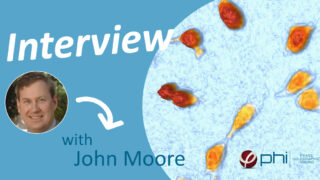HoloMonitor technology facilitates cancer research at Florida International University

The first results of the ongoing collaboration between the Department of Environmental and Occupational at Florida International University (FIU) and PHI were presented in April at the annual meeting of the American Association for Cancer Research (AACR).
Cancer stem cells are hypothesized by cancer researches to be the “cancer seed” that causes cancer to spread. The inability to treat metastatic cancer is believed to be a result of that current cancer drugs where primarily developed to kill normal cancer cells, not the cancer stem cells that spread the cancer to other parts of the body. Due to that just a few metastatic cancer cells in the blood stream is sufficient for the cancer to spread, there is today no diagnostic method for detecting metastatic cancer before it is too late in most cases.
The collaboration between FIU and PHI focus on the devastating transformation of breast cells into metastatic cancer stem cells. Spearheaded by Professor Deodutta Roy the researchers at FIU have successfully used PHI’s HoloMonitor® technology to study cancer stem cells ability to move when affected by various cell signals. Additionally, they have shown that these signals also affect the transformation of breast cells into cancer stem cells and their ability to form micro tumors. By interfering with these cell signals the researcher’s hope to develop new and improved cancer treatments. For additional information regarding the collaboration see Fight against cancer fueled by public-private collaborations and FIU’s poster at AACR.
“We are particularly encouraged by HoloMonitor’s combined real-time capabilities to study cell motility and 3-dimensional morphology of living normal cells, breast cancer cells and cancer stem cells. We are enthusiastic about continuing the collaboration and anticipate that the HoloMonitor technology will contribute significantly to the understanding of metastatic breast cancer progression and development of novel early noninvasive diagnostic and prognostic biomarkers”, said Prof. Roy.
“It is deeply rewarding to see our HoloMonitor technology contributing to cancer research. The technology’s key strength is quantification of single cell responses to stimuli without affecting the cells, which is fundamental to reliably be able to study living cells”, said Peter Egelberg, CEO.
LINKS
- “About cancer stem cells” by European Cancer Stem Cell Research Institute

